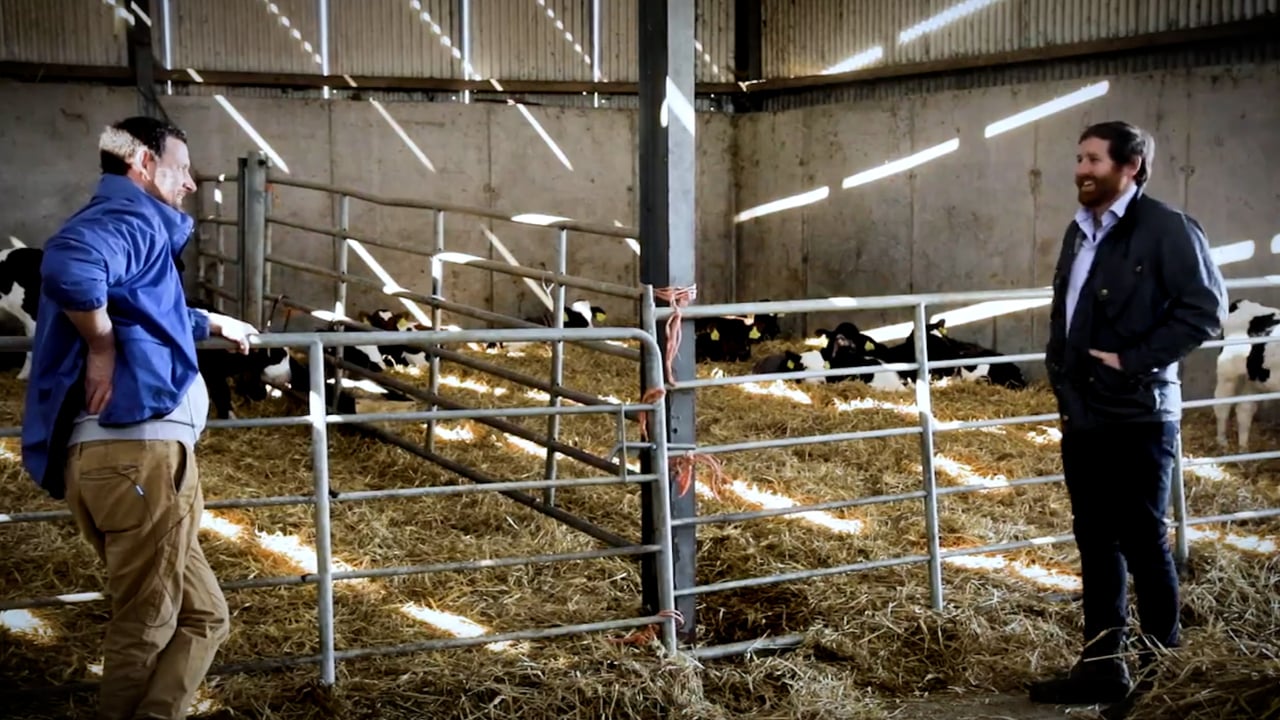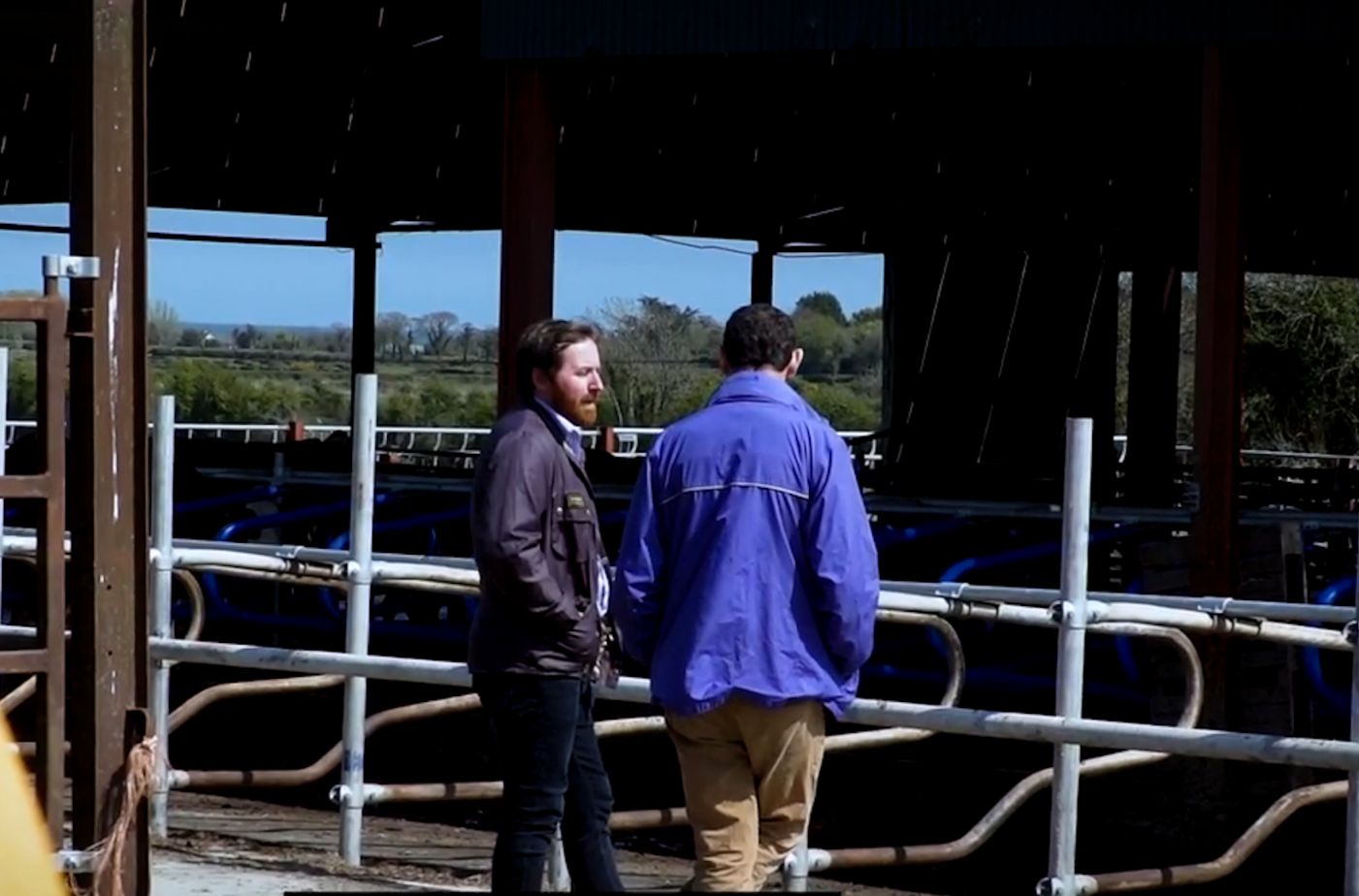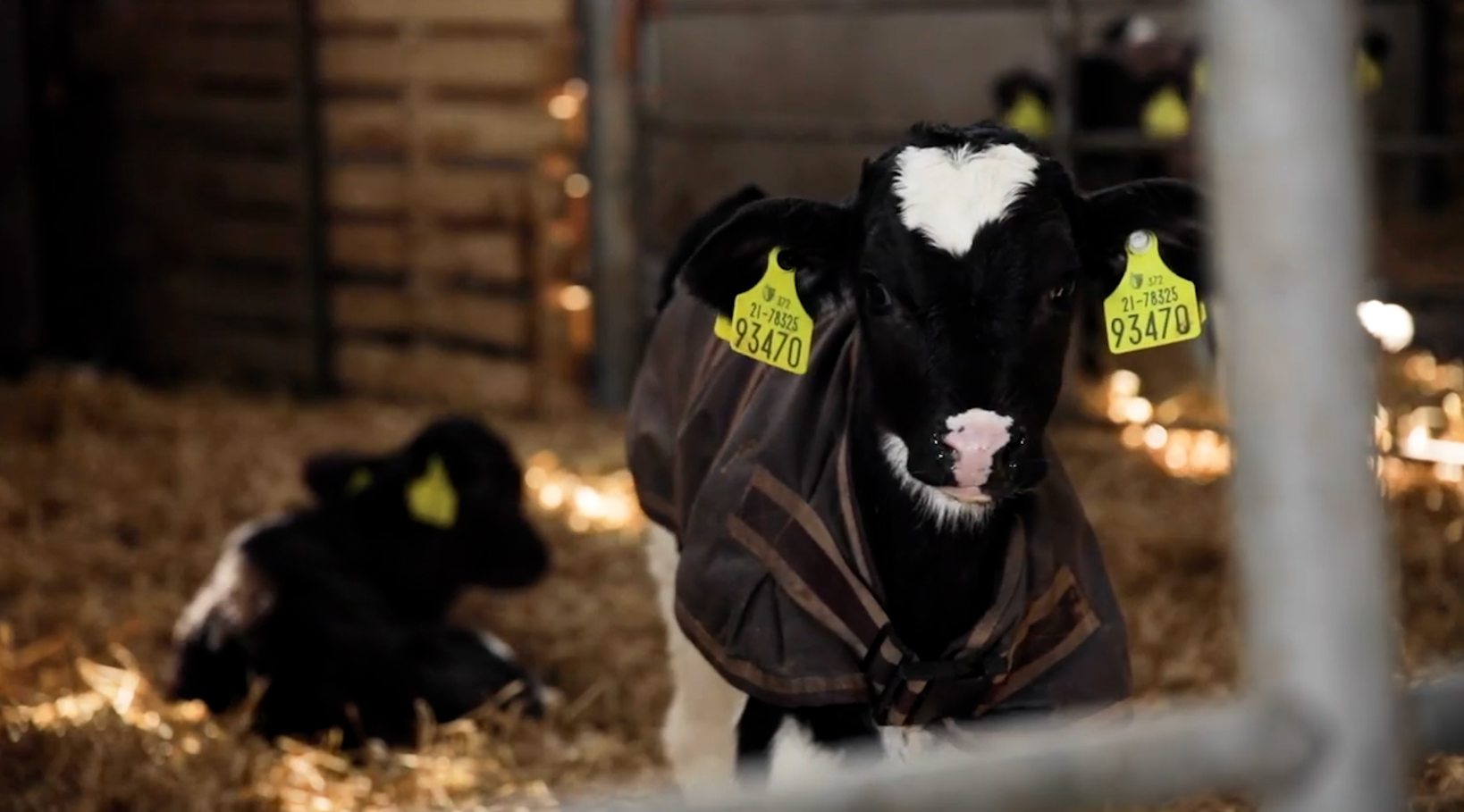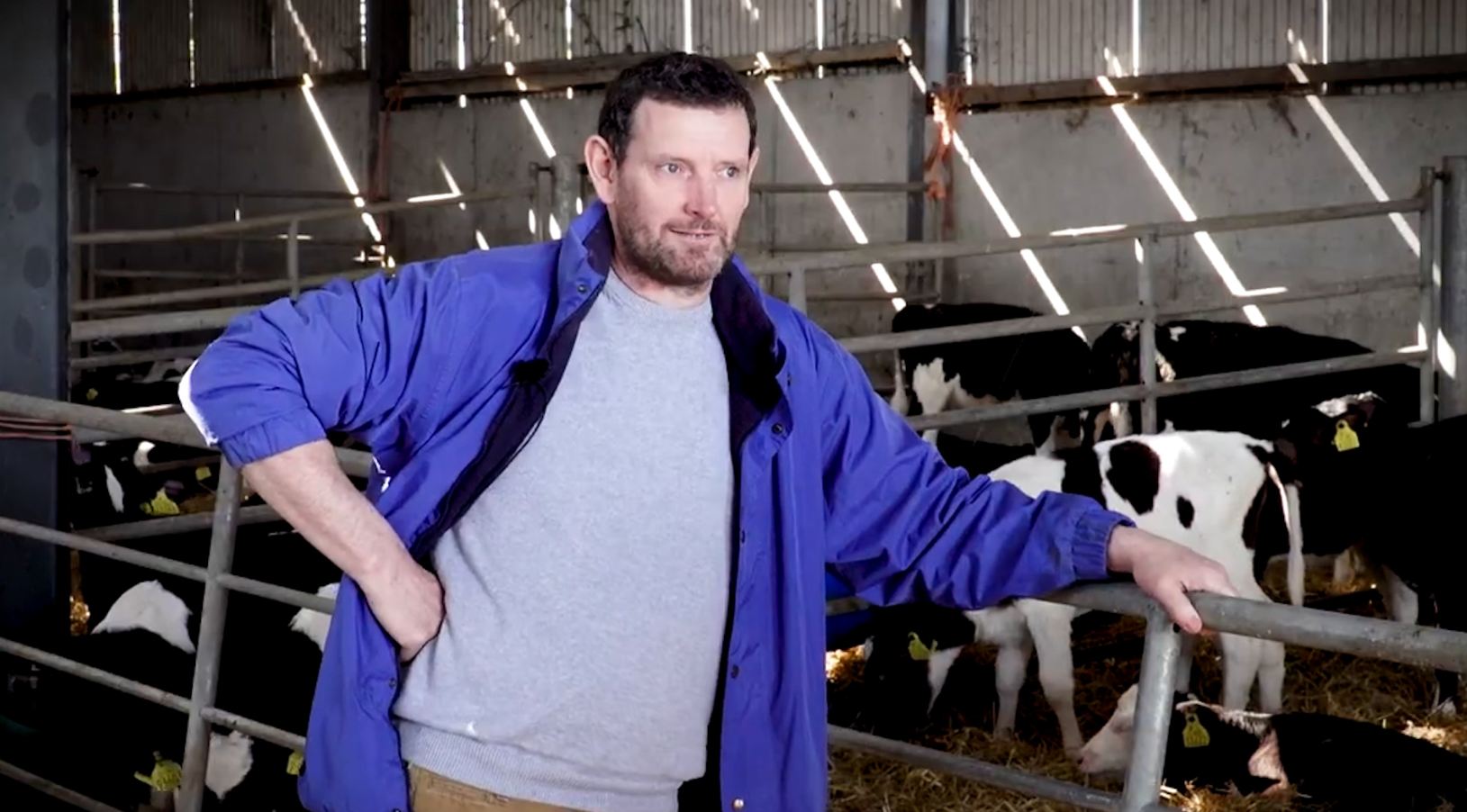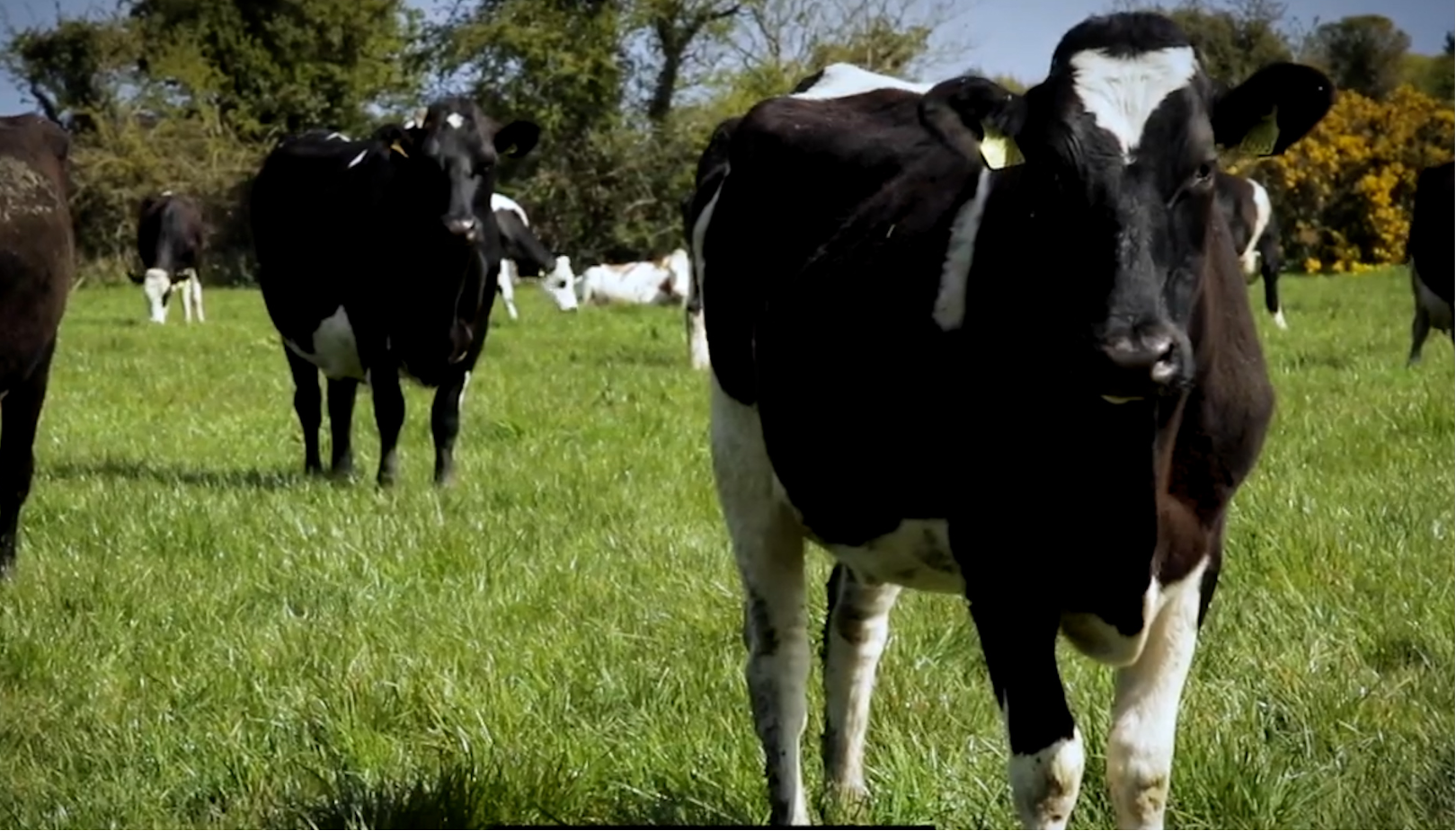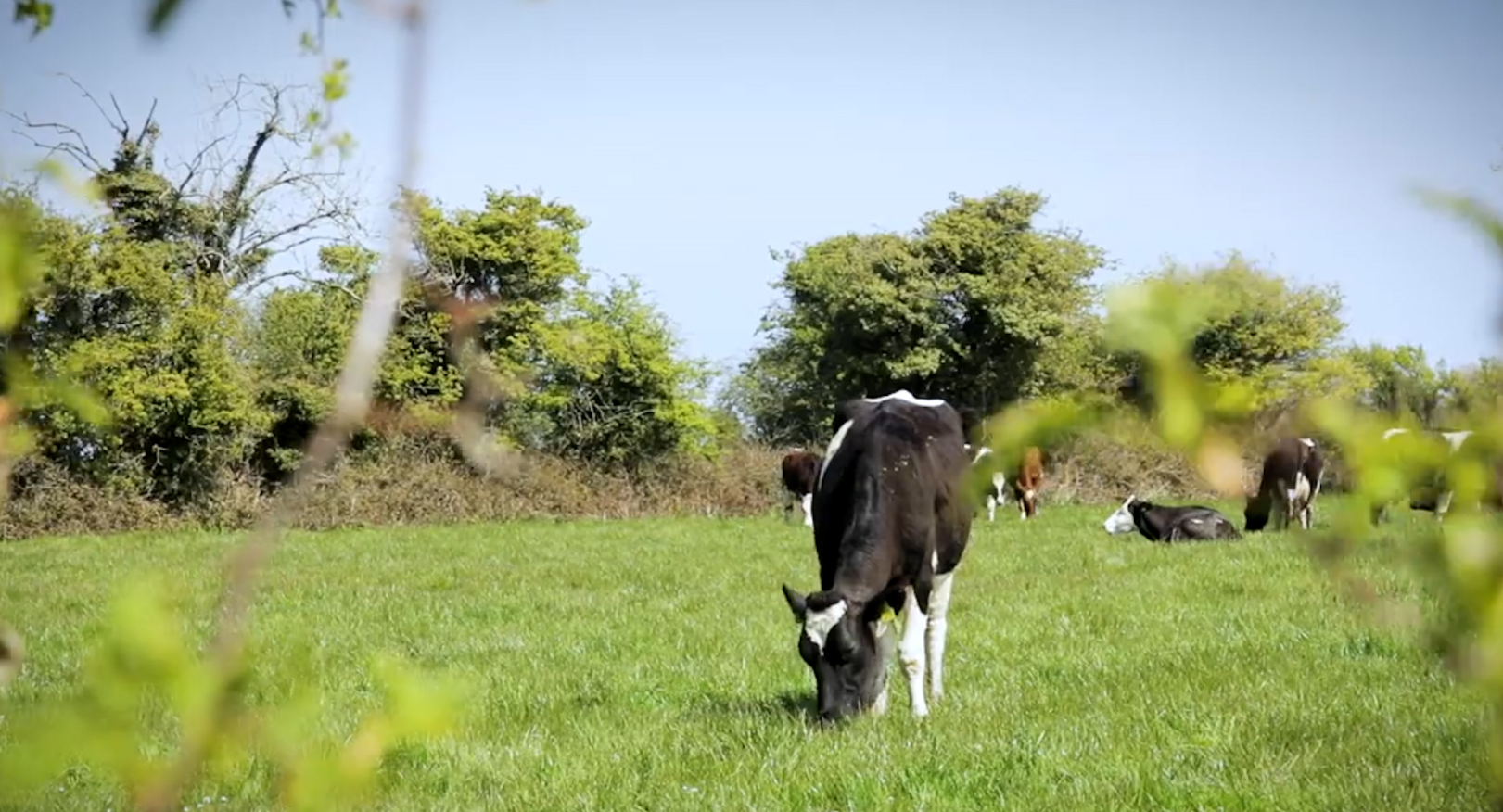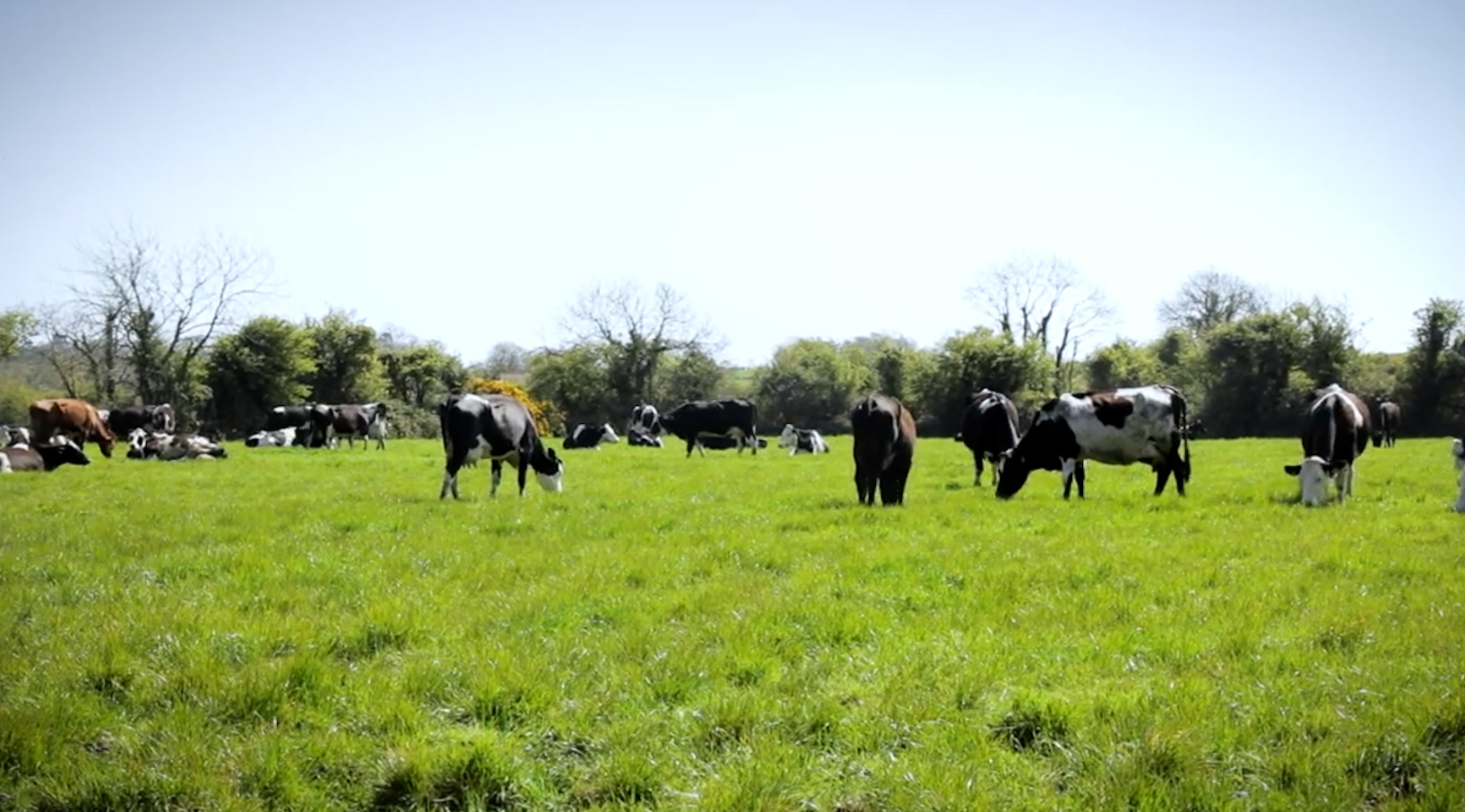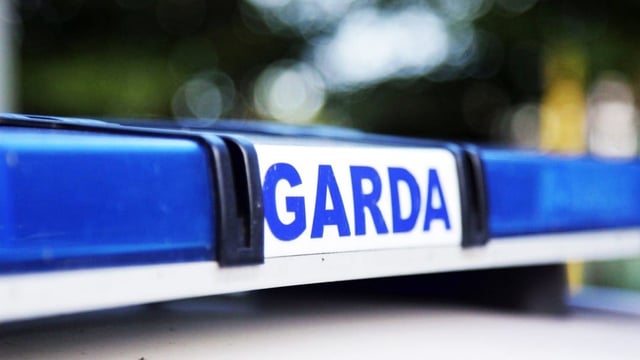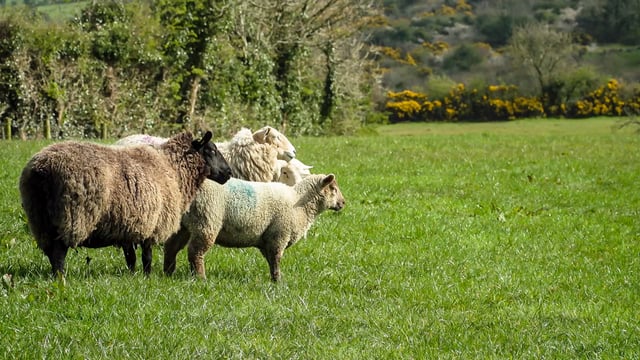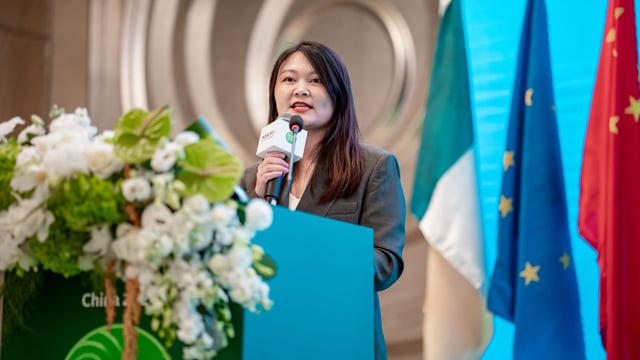Sponsored Article

Sponsored Article
George goes dairy farming: From a Co. Louth dairy farm to the European Parliament
Sponsored Article

‘George Goes Dairy Farming’ series 2 continues with episode 5 – this innovative farm-focused series is proudly brought to you by Agriland Media and Progressive Genetics.
The Co. Wicklow-based dairy farmer, George Beattie, is in the ‘wee’ county to visit the farm of Colm Markey.
On the farm just outside Dundalk, Co. Louth, Colm, his other half Aisling and children, alongside a small team, are currently milking 300 cows, while also being a Member of the European Parliament (MEP) since November 2020.
George speaks to Colm about his role as an MEP; how he became involved with politics; the progression of the herd; and how he uses milk pregnancy testing as a management tool on his farm.
The ongoing series of videos, produced by Agriland Media with the support of Progressive Genetics, has provided unique insights into the management practices adopted by milk producers across the entire gamut of dairy farming business models implemented in Ireland.
All have been widely recognised for their focus on the clear communication of new thinking within the dairy sector, and their role in providing ‘peer learning’ opportunities for all Irish dairy farmers. The latest production is a further, invaluable reference point for anyone with an interest in modern milk production systems.
Speaking about how he started in dairying Colm said: ''My family has been farming here for nearly 200 years; my father started dairying in the 1950s supplying liquid milk to Dublin.
''When quotas were introduced we were milking around 100 cows. As production from the cows improved we had to decrease the herd size to 92 cows, which we milked until quotas where abolished, since then we have expanded the herd to close to the 300 cow mark.
''After I finished my leaving [certificate], I returned home to farm alongside my father completing my Green Cert by day; he had just bought a block of land next to us and needed help to farm it.''
Speaking about why he joined Macra na Feirme and how that led him to a life in politics, Colm said: ''Because I returned home to farm after school, I did not get the college years to enjoy myself.
''For the first eight to nine years in Macra I enjoyed myself, after those few years I began to start taking it seriously - I became my local club chair and progressed to national council vice-president and then president.
''From a farming perspective it is important that Macra is there to represent young farmers, both at a national level and European level," Colm added.
Commenting on the expansion of the herd and the introduction of staff onto the farm, Colm stated: ''The land base was there to expand. Being able to get to a scale were you could employ someone means you can take time off and not be worried about getting someone.
''Alex is from Latvia and started in 2001 - he actually started about three days before the foot and mouth outbreak.
''I said we could probably squeeze her in somewhere and they have been with me ever since then.
''Without them I would not have been Macra president or have gotten to were I am today; they both have been great,'' Colm added.
With the herd expanding since the removal of quotas, Colm has added several management tools to the farm. Commenting on this he said: ''The people are the most important thing. I like to give Alex and Inese as much responsibility as possible, so they feel like they own the place which is what I like.
''It is the people before the tools I would say, we use the HerdApp for health records and registrations.
''We are Glanbia suppliers so I can see the dockets on my phone when I am away. I more often than not, know the information before Alex would.
''This year we installed a calving camera on the farm, which was great because I can see what is happening from my phone.''
Commenting on the use of milk recording and milk pregnancy testing on the farm, Colm stated: ''We milk recorded for a long number of years, only stopping for a couple of years while we were updating the milking parlour.
''We started back three years ago. We are going down the route of reducing the amount of antibiotic usage, so having data on cell counts is important.
''The milk recording data shows you the improvements that are being made each year.
''We milk pregnancy tested the cows twice a week last year during the breeding season; we want to get the cows in-calf early in the breeding season.
''Getting someone in to scan cows every three or four days is not practical; once you know they are in-calf they get a different colour tail paint and you can nearly forget about them.
''As a management tool you know where you stand and it allows you focus on the cows that are not in-calf,'' Colm added.
''Coming from a liquid herd, our calving pattern was quite spread out, so compacting the spread was a big goal. This year we calved a 196 cows in six weeks.''
Colm has served as an MEP since November 2020. When George asked about the first thing that came into his head, after receiving the phonecall about taking on the role, "the cows or the kids?", Colm laughingly answered: ''No comment!''
Colm went on to say: ''The natural reaction was how am I going to balance the farming, if I am honest, but my other half Aisling was very supportive.
''I had been over to Brussels on several occasions with Macra; the culture is fundamentally different than what it was 15 years ago.
''I make the point that farmers are the ones that choose to work in the environment - the people you [environmentalists] are criticising possibly love the environment much more than you do yourself,'' Colm stated.
''I definitely think that the people who are implementing policy in Brussels do not understand what is happening at ground level on farms.
''The representation for farmers in Brussels is getting smaller; agriculture has plenty of challenges to face and the longer we put if off, the harder it will be to face these challenges.
''The sooner we can show that we are taking the environmental issues seriously and we have it under control, they will move on to something else,'' Colm continued.
Asked about the five-year plan for the farm, Colm stated: ''The next big thing to be done on the farm is to update our roadways. In the last two years we updated the water system.
''I would like to think that we can improve our production by 20-25% by improving our breeding policy and breeding better cows.''
Colm concluded by stating: ''Since 1990, cow numbers in this country have essentially stayed the same, but production has increased by 60%. If that is not more environmentally friendly, I am not sure what is.
''The problem with the carbon calculation is it is taken in absolute terms and production is not taken into account.
''The Irish system of production is production at a minimum environmental impact.''
Catch up on all the episodes of series 2 here:
Part 1: ‘George goes dairy farming’: 1 couple; 2 farms; 3 kids; and 750 cows
Part 2: 'George goes dairy farming': Changing the game with sexed semen
Part 3: 'George goes dairy farming': Winning in Wexford with heifer synchronisation programme
Part 4: 'George goes dairy farming': Achieving 38.4cpl and 3.94% protein with black & whites
Catch up on all the episodes of series 1 here:
Part 1: ‘George goes dairy farming’: ‘We’ll go another row and see how we go; the land is there’Part 2: ‘George goes dairy farming’: Using 50% Belgian Blue genetics in Co. MeathPart 3: ‘George goes dairy farming’: Attention turns to breeding in Co. Meath and Co. WexfordPart 4: ‘George goes dairy farming’: The right number of cows for the system in Co. WexfordPart 5: ‘George goes dairy farming’: Calving down 200 cows in just 4 weeks in Co. WexfordPart 6: ‘George goes dairy farming’: Tagging calves and a date with a spring-calving Meath farmerPart 7: ‘George goes dairy farming’: Which system works best and why?
For more information on AgriNet HerdApp, just [button link="https://www.agrinet.ie/"]Click here[/button]
Additionally, for more information on Progressive Genetics, just [button link="https://www.progressivegenetics.ie/"]Click here[/button]
Sponsored Article


